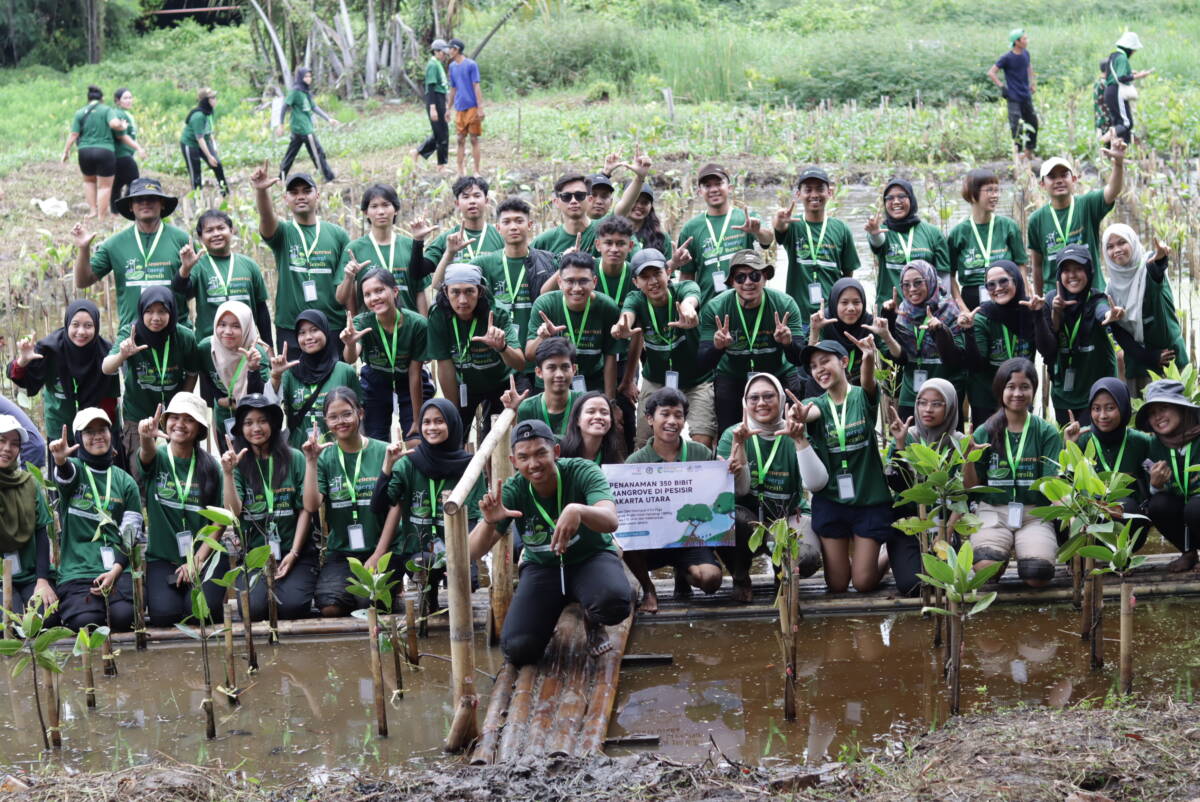
Jakarta, March 27, 2024– A procession of individuals in moss green attire filled the streets around Gambir, Central Jakarta. Their attire bore the insignia of Generasi Energi Bersih (GEN-B) or Clean Energy Generation, and some carried placards encouraging onlookers to curb their personal emissions. With youthful faces, approximately 350 individuals gathered to address emissions contributing to the global climate crisis.
Supported by the Institute for Essential Services Reform (IESR), Generasi Energi Bersih (GEN-B) South Jakarta in collaboration with GEN-B Jakarta, and Pertamina University’s Heuri Cosmos Research and Scientific Work Student Activity Unit, rallied the youth of Jakarta. Engaging in a leisurely march, they endeavored to reduce emissions by planting mangroves, departing from Gambir and converging on the mangrove ecotourism area at Pantai Indah Kapuk (4/3).
Fabby Tumiwa, Executive Director of IESR participated in the mangrove planting initiative. He stated that GEN-B initiated the activity, utilizing jejakkarbon.id to calculate daily emissions. GEN-B members then pooled funds and donations for carbon offsetting, including mangrove planting.
“Mangrove planting embodies the tangible concern of our youth, acknowledging their daily activities’ contribution to greenhouse gas emissions. In addition to awareness, they offset emissions through simple actions like turning off lights and minimizing waste. Planting mangroves aims to absorb emissions from the atmosphere,” explained Fabby.
Fabby expressed hope for similar initiatives nationwide, as GEN-B has expanded to nine cities across the country, including Bandung, Yogyakarta, Bali, and Bogor.
“Embracing emission reduction can be a shared ethos among GEN-B members. They serve as information sources and inspiration, fostering a generation aware of emission reduction to avert a climate crisis,” Fabby emphasized.
Riko Andriawan, Chairman of GEN-B South Jakarta, noted that planting 350 mangrove seedlings could significantly aid emission absorption.
“Emission reduction doesn’t require extravagance; it begins with self-awareness. Simple steps like using public transport, minimizing disposable plastics, and conserving electricity can contribute. Younger generations must grasp global warming and emission reduction concepts,” stated Riko.
Maya Lynn, GEN-B Indonesia Chairperson, underscored that the foremost challenge arises from individual actions.
“Awareness of our carbon footprint must start within. Websites like jejakkarbonku.id allow us to quantify our emissions, fostering consciousness about our environmental impact.”
Nur Azizah, representing Research and Scientific Work Student Activity Unit Heuri Cosmos Universitas Pertamina, lauded the collaboration with GEN-B South Jakarta as a commendable opportunity. Their advocacy for renewable energy and emission reduction through research found tangible expression in mangrove planting, contributing to a greener planet.

